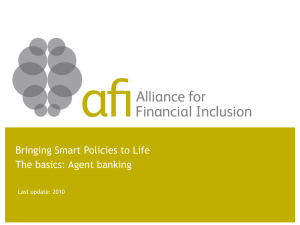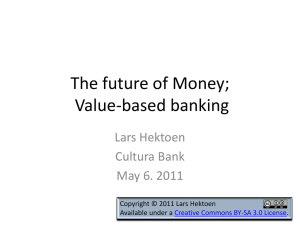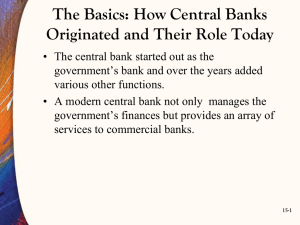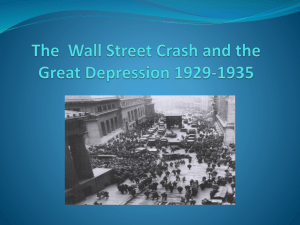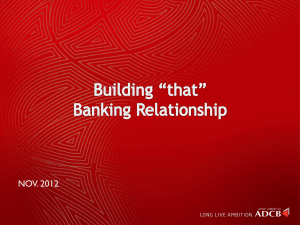VNO-NCW
advertisement
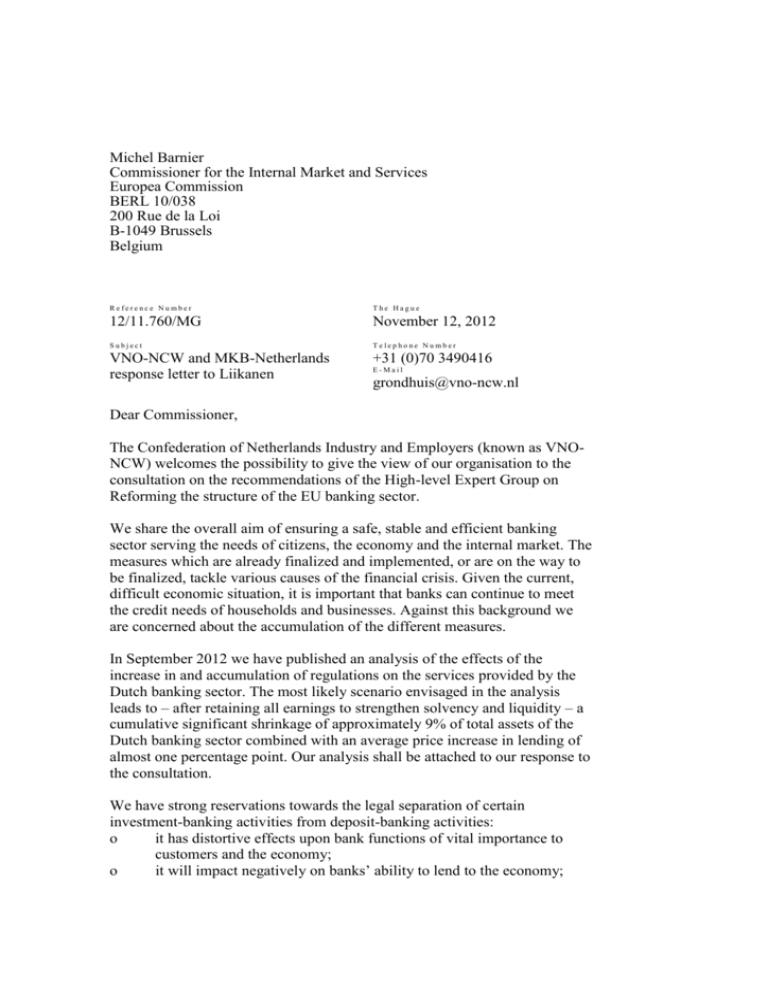
Michel Barnier Commissioner for the Internal Market and Services Europea Commission BERL 10/038 200 Rue de la Loi B-1049 Brussels Belgium Reference Nu mber The Hague 12/11.760/MG November 12, 2012 Subject Te lep ho ne Nu mber VNO-NCW and MKB-Netherlands response letter to Liikanen +31 (0)70 3490416 E-Mail grondhuis@vno-ncw.nl Dear Commissioner, The Confederation of Netherlands Industry and Employers (known as VNONCW) welcomes the possibility to give the view of our organisation to the consultation on the recommendations of the High-level Expert Group on Reforming the structure of the EU banking sector. We share the overall aim of ensuring a safe, stable and efficient banking sector serving the needs of citizens, the economy and the internal market. The measures which are already finalized and implemented, or are on the way to be finalized, tackle various causes of the financial crisis. Given the current, difficult economic situation, it is important that banks can continue to meet the credit needs of households and businesses. Against this background we are concerned about the accumulation of the different measures. In September 2012 we have published an analysis of the effects of the increase in and accumulation of regulations on the services provided by the Dutch banking sector. The most likely scenario envisaged in the analysis leads to – after retaining all earnings to strengthen solvency and liquidity – a cumulative significant shrinkage of approximately 9% of total assets of the Dutch banking sector combined with an average price increase in lending of almost one percentage point. Our analysis shall be attached to our response to the consultation. We have strong reservations towards the legal separation of certain investment-banking activities from deposit-banking activities: o it has distortive effects upon bank functions of vital importance to customers and the economy; o it will impact negatively on banks’ ability to lend to the economy; Page 2 o o o it will reduce diversification and synergy benefits of the universal banking model; it does not solve the issue of systemic risk; it will reduce the competitiveness of the Dutch and European financial sector compared to financial sectors not affected by this recommendation. From a macro-economic point of view banks are very important for their traditional intermediary function of financing the real economy by transforming savings. Transforming involves matching maturities and risks of various activities. Universal banks have a wide range of activities, and this diversity leads to a lower risk profile and more stability. We think separation leads to hampering the existing synergies between saving and investment activities of banks. The question is whether legal separation can prevent contamination between saving and investment activities, leading to more stability. Investment banking activities are interwoven in various ways with the rest of the financial system. Specifically, in the Netherlands, there is a "retail funding gap", meaning that the savings and loan demand in the Dutch retail market is not in equilibrium. One of our biggest concern is that a separation of investmentbanking from deposit-banking activities worsens the dependency of Dutch banks on wholesale financing. This would lead to an increase in risks and higher costs for services to both corporate and private customers, and adversely affect our economy. And the problem is that such strengthening of the reliance on wholesale funding is increasing the risk of contamination. This is even worsened by the loss of diversification that makes banks sensitive to macroeconomic shocks, which is not beneficial to the stability of banks. Another concern is that legal separation of “investment-type” banking activities, including trading activities to serve customers like derivatives for individual corporate customers, probably reduces the number of banks that can provide these kind of activities. These activities are in the Netherlands limited in comparison with foreign banks. Separation makes them non-viable. The disappearing of investment- and trading-activities by Dutch banks implies that Dutch businesses will have to apply to large foreign investment banks for investment banking, i.e. a foreign bank who hasn’t built up a relationship with these businesses. Separation will hamper risk management of companies en investment opportunities of non-financial businesses abroad. Also, dependence on foreign players outside the EU is undesirable since it means greater uncertainty on the financing of the European economy. Page 3 All in all, we endorse the position -that last year was put forward by the Dutch government- not to go further than ensuring “ring-fence-readiness” in a crisis. This does not require any further regulation. The High Level Expert Group also proposes further regulatory reforms, for example on governance and capital requirements. We think it is prudent to first finalize the current measures to strengthen en stabilize the bankingsector. Further accumulation has distortive effects upon bank functions which are of vital importance to the recovery and growth of the economy. One of the measures currently being finalized concerns the use of designated bail-in instrument as a resolution tool. This instrument is supported by de High Level Expert Group. We endorse the conclusion of the Group that unclear definitions limit the liquidity in de market for debt. Since the dependency of Dutch banks on financial markets is high, it is very important that clarity on the exact application of the bail-in instrument is needed. Best regards, drs. C. Oudshoorn director VNO-NCW

